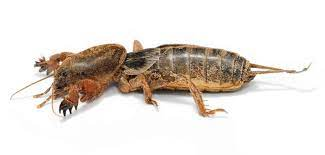Lawns are often sanctuaries of peace and beauty, offering a lush, green retreat from the bustling world. However, beneath the surface of your lawn lurks a hidden menace: the mole cricket. Despite their unassuming appearance, these insects can wreak havoc on warm-season grasses, turning your turf into a patchwork of destruction.
Mole crickets are subterranean insects known for their burrowing habits, which cause significant damage to roots and grass. These pests prefer sandy soils where they can easily tunnel, leaving behind raised swellings on the surface of your lawn. As they burrow, mole crickets feed on the roots of the grass, leading to large, brown, spongy areas that can ruin the aesthetic of your lawn and provide an entry point for other pests and diseases.

The damage is not just cosmetic; it can also be deeply structural. Mole crickets’ tunnels disrupt the root systems, impairing water and nutrient uptake. This can lead to increased water usage and the need for more aggressive lawn care practices to counter the damage. In severe cases, the turf may need to be renovated entirely, leading to costly repairs.
Combating mole crickets requires a combination of vigilance and strategic intervention. Regular lawn monitoring for early signs of damage, such as irregular brown patches or spongy turf, is key. Once detected, various methods exist to manage these pests, including biological controls, insecticides, or cultural practices such as maintaining a healthy, well-aerated lawn to discourage mole cricket infestation.
While mole crickets may be out of sight, their effects on your lawn are not out of mind. Understanding the threat they pose and taking proactive measures to control their population will help ensure that your lawn remains a vibrant and inviting space for years to come.
For more information regarding mole crickets or other lawn pests, give us a call or speak to your Freedom Lawns Technician at your scheduled visit.




